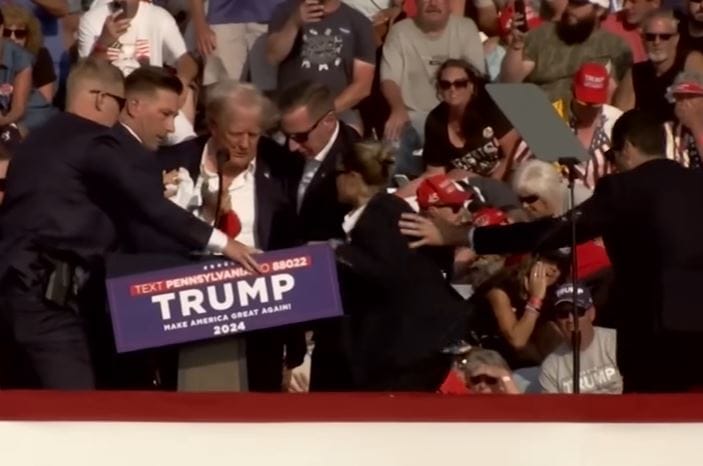The Surge of Media Frenzy
By the early morning hours, Milford Drive in Bethel Park, Pittsburgh, transformed into a bustling hub of journalistic activity. The 20-year-old Thomas Matthew Crooks, who attempted to assassinate former President Donald Trump, became the epicenter of an intense media scrutiny. Reporters from global outlets like Der Spiegel, the Globe and Mail, and Epoch Times congregated alongside TV crews and wire agency personnel, all aiming to uncover the mystery behind Crooks’ motivations. The atmosphere resembled a pride of lions under the midday sun, with journalists eagerly awaiting any scrap of information that could shed light on this unprecedented act of political violence.
An Unremarkable Suburb, An Unthinkable Act
Bethel Park, a serene suburb with modest homes and winding roads, seemed an unlikely setting for such a violent act. Mayor Jack Allen, a Republican, emphasized the community’s harmonious political landscape, where local governance transcends party lines. This idyllic suburban life was disrupted when Crooks, a quiet young man known for his mathematical prowess and political interest, climbed onto a factory roof and fired multiple shots at Trump during a campaign rally.
Interviews with Crooks’ acquaintances painted a picture of a reserved individual with conservative leanings, yet his actions left everyone bewildered. Despite his registration as a Republican and evident interest in firearms, Crooks also made a donation to a liberal political action committee, adding complexity to his profile. The absence of a manifesto or digital trail further deepened the enigma, leaving investigators and journalists grasping for clues.
The Influence of the Wealthy on Democracy
The attempted assassination of Trump brought to the forefront the profound impact of wealth on the democratic process. Elon Musk, the world’s richest person, announced a staggering $45 million monthly donation to a super PAC supporting Trump, exemplifying how the uber-wealthy can sway political outcomes. Musk, who boasts 190 million followers on his rebranded social media platform X (formerly Twitter), wields significant influence over public opinion and voter behavior.
Similarly, other billionaires like Michael Bloomberg and Timothy Mellon have made substantial contributions to political campaigns, highlighting the escalating role of money in elections. This financial clout raises concerns about the erosion of democratic principles, as average citizens’ voices are increasingly drowned out by the monetary might of a few.
The Implications of Musk’s Financial Endorsement
Musk’s financial backing of Trump underscores the symbiotic relationship between wealth and political influence. SpaceX, Musk’s aerospace venture, holds lucrative contracts with the U.S. government, including a $1.8 billion deal for spy satellites. These connections suggest that Musk’s donations are strategic moves to secure favorable policies and maintain his business interests.
Musk’s endorsement of Trump on X, following an assassination attempt, further amplifies his influence. His substantial social media following could mobilize voter turnout among demographics aligned with his views on technology, innovation, and economic policies. This scenario underscores the disproportionate power wealthy individuals hold in shaping electoral outcomes and public discourse.
The Quest for Motive: An Ongoing Investigation
As the FBI delves into Crooks’ background, the quest to uncover his motive remains fraught with uncertainty. Neighbors and classmates described Crooks as a quiet, politically inclined individual with no apparent history of radicalization. The lack of a clear digital footprint or manifesto has left investigators with scant evidence to piece together his reasoning.
The media’s relentless pursuit of answers reflects society’s broader struggle to comprehend senseless acts of violence. In a country plagued by frequent mass shootings, the motives behind such attacks often remain elusive. Crooks’ attempt on Trump’s life, while rare in its proximity to a former president, echoes the pervasive issue of gun violence in America.
Conclusion: Reflecting on Democracy and Violence
The intersection of wealth, political influence, and violence in this case highlights the fragility of democratic institutions. As billionaires like Musk wield their financial power to shape political landscapes, the need for campaign finance reform becomes ever more pressing. Ensuring equitable representation and safeguarding democracy from the corrosive effects of money are paramount to preserving the integrity of the political process.
The attempted assassination of Trump serves as a stark reminder of the volatility of political discourse and the urgent need to address the underlying causes of violence. As investigators continue to unravel the motivations behind Crooks’ actions, society must grapple with the broader implications of wealth, influence, and the sanctity of democratic values.

Sunil Garnayak is an expert in Indian news with extensive knowledge of the nation’s political, social, and economic landscape and international relations. With years of experience in journalism, Sunil delivers in-depth analysis and accurate reporting that keeps readers informed about the latest developments in India. His commitment to factual accuracy and nuanced storytelling ensures that his articles provide valuable insights into the country’s most pressing issues.



